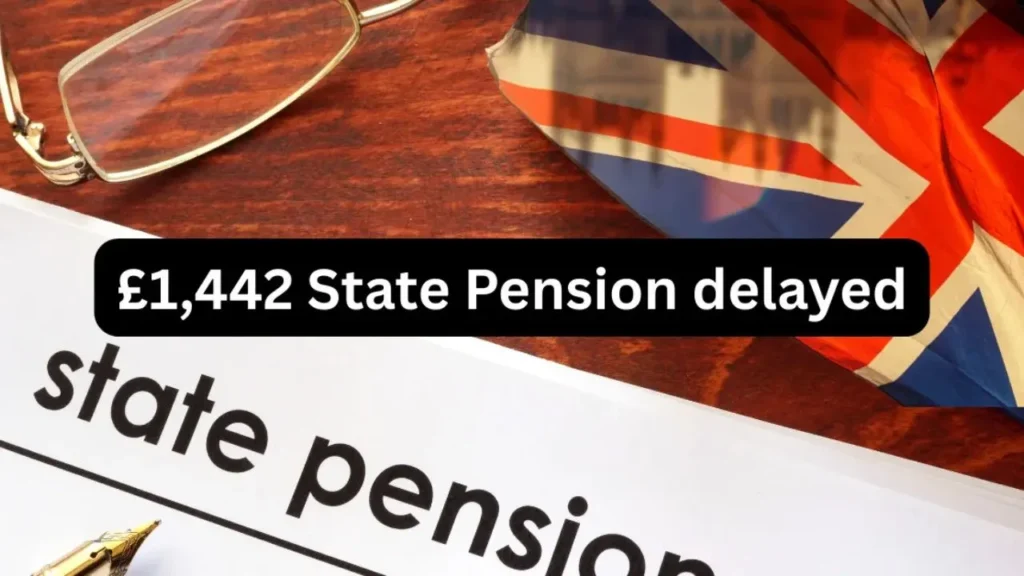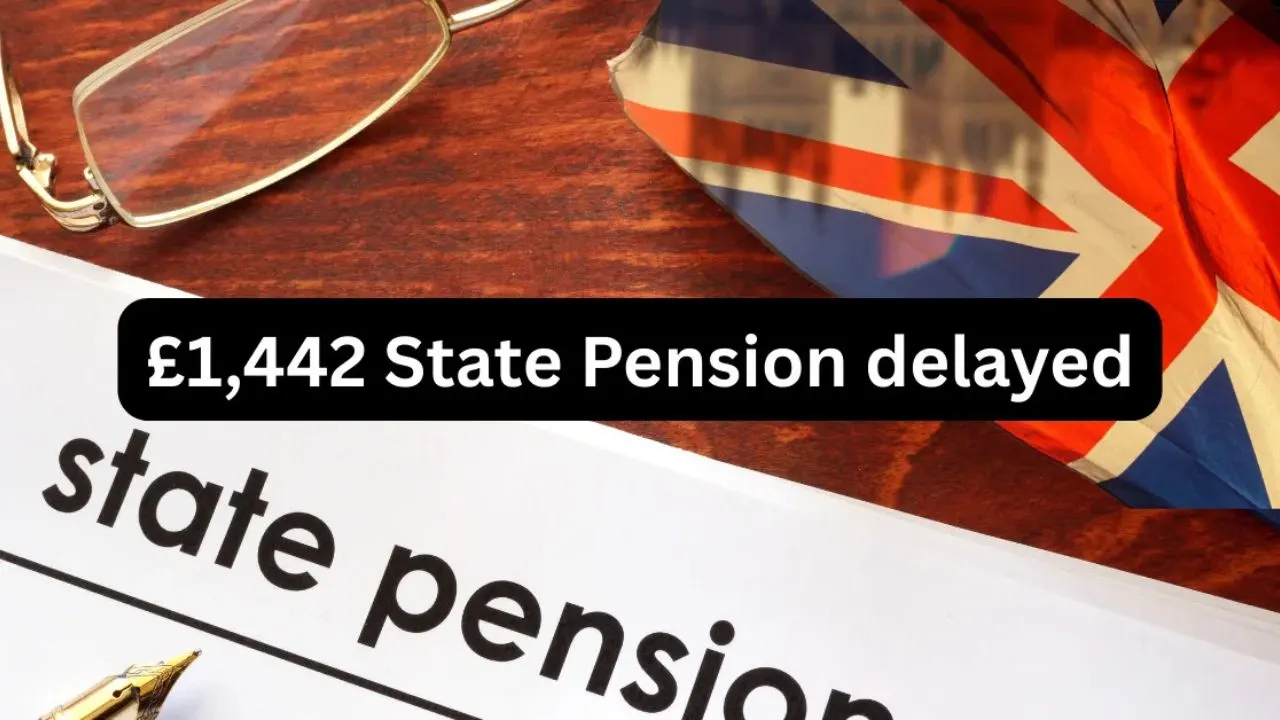£1,442 State Pension Top-Ups delayed by DWP and HMRC. For thousands of retirees across the UK, the opportunity to increase their State Pension by paying voluntary National Insurance (NI) contributions was a welcome lifeline. By filling in gaps in their contribution history, pensioners were promised higher weekly pension payments and a more secure retirement.
The scheme was attractive because the government allowed people to go back as far as 2006, rather than the usual six years, to make up for missing NI years. For many, this seemed like an excellent investment: pay several hundred pounds now and gain hundreds of pounds extra each year for the rest of their lives.
But what should have been a simple, positive process has turned into a frustrating deal. Reports are emerging of pensioners paying substantial sums, sometimes over £1,400, only to be left waiting months with no increase in their pension, no clear communication, and no reassurance about when their money will be reflected.
£1,442 State Pension Top-Ups Delayed by DWP and HMRC – Key Details
| Category | Details |
| Article | State Pension Top-Up Delays |
| Type | Public Interest |
| Country | United Kingdom |
| Scheme | National Insurance Top-Up |
| Department | DWP & HMRC |
| Issue | Lost payments, long processing delays |
| Affected Group | Pensioners / Retirees |
| Expert Views | Outdated systems, urgent reform needed |
Stories of Pensioners Caught in the System
Consider the experience of Marion Stewart (71). Last year, she paid £824 to cover one missing year of contributions. She expected her pension to rise shortly afterwards, as the scheme promised. Six months later, she has seen no change. Her case is “in the queue,” but she has received no timeline and no firm response from officials.
Similarly, John Wynne spent £1,442 to buy three missing years. Like Marion, he too was told to “be patient.” Half a year later, his pension remains unchanged. What should have been a straightforward process has left him in limbo.
Another pensioner, who asked not to be named, paid nearly £1,500 to top up three years. After nine months—and only after outside advocacy—he received a partial back payment of £739.44. But even then, there was no explanation, no apology, and no compensation for the stress or the long wait.

For pensioners who rely on every pound to manage daily expenses, this situation is more than an inconvenience. Many budgeted carefully to pay these top-ups, expecting their pensions to rise promptly. Instead, they face financial uncertainty and worry about whether their investment has been lost in government bureaucracy.
Why the Delays?
The delays are largely due to the way HMRC and the Department for Work and Pensions (DWP) process these top-ups. Older NI gaps—those dating back before recent years—require manual checks across multiple outdated systems.
With tens of thousands of people rushing to secure top-ups before the April 2025 deadline, both departments have been overwhelmed. Staff shortages and heavy reliance on paper-based processes have created backlogs stretching into many months.
Communication is another key issue. Pensioners frequently describe long hours waiting on helplines, being passed between HMRC and DWP, and receiving vague answers rather than concrete updates. Automated responses and “please be patient” messages dominate their interactions, leaving many feeling ignored and dismissed.
Expert Views
Experts have voiced strong criticism of the government’s handling of the issue.
Former pensions minister Steve Webb highlighted the systemic failures:
Time and again, people are left hanging on the telephone, told it could be months before their top-up contributions boost their State Pension. Pensioners deserve better support, clearer communication, and faster processing.
Baroness Ros Altmann, another respected pensions expert, has echoed these concerns. She argues that the process is outdated, overly complex, and dependent on patching together old systems that should have been modernised long ago. According to her, this failure to invest in modern technology has left pensioners bearing the cost in both money and peace of mind.
From a political standpoint, the Labour government has acknowledged the issue. A spokesperson apologised to affected pensioners and promised quicker resolutions where errors occur. However, so far, no firm timeline has been set to clear the backlog, and many pensioners remain sceptical.
The Human Impact
While the sums involved may seem small compared to national budgets, the reality for pensioners is stark. For someone living on the basic State Pension of around £221 per week, an extra few pounds can mean being able to cover rising energy bills, buy fresh food, or afford occasional social outings.
The uncertainty surrounding top-ups adds unnecessary stress to a stage of life when financial stability should be assured. Pensioners are left wondering whether their savings have disappeared into a bureaucratic black hole. This erodes not only their trust in government systems but also their sense of dignity in retirement.
What Can Pensioners Do?
Although the system is slow, pensioners are not powerless. There are steps they can take to push their cases forward:
- Keep following up: Call HMRC and DWP regularly, take notes, and keep a record of reference numbers and conversations.
- Seek external help: Organisations such as consumer watchdogs, pension advisory services, and even Members of Parliament can sometimes escalate cases.
- Check pension statements: Monitor accounts closely for any signs of back-payments or adjustments.
- Request written updates: Instead of relying on phone calls, written correspondence can create an official record and apply more pressure.
A Call for Reform
This situation highlights deeper issues with the UK’s pension system. The reliance on outdated, fragmented IT systems has created inefficiency, confusion, and unnecessary hardship for pensioners who acted in good faith.
To restore trust, DWP and HMRC must commit to:
- Modernising systems to reduce reliance on manual checks.
- Hiring additional staff to clear backlogs quickly.
- Improving communication so pensioners receive timely, transparent updates.
- Offering compensation for unreasonable delays, including interest on back payments.
Without these changes, the very people who contributed to the system throughout their working lives will continue to feel let down in retirement.
| Home Page | https://sbbarristers.com/ |
FAQs for £1,442 State Pension Top-Ups Delayed by DWP and HMRC
Why are pensioners paying HMRC extra money?
To fill gaps in their National Insurance record, which increases their State Pension entitlement.
How far back can people buy missing NI years?
Until April 2025, they can cover gaps dating as far back as 2006, rather than just the usual six years.
Why are payments taking so long to show up?
Because HMRC and DWP rely on manual checks across outdated systems, and the surge in demand has created major backlogs.
Do pensioners get refunds or interest if payments are delayed?
Refunds are rare and not automatic. Some partial repayments have been issued, but without interest or compensation.
